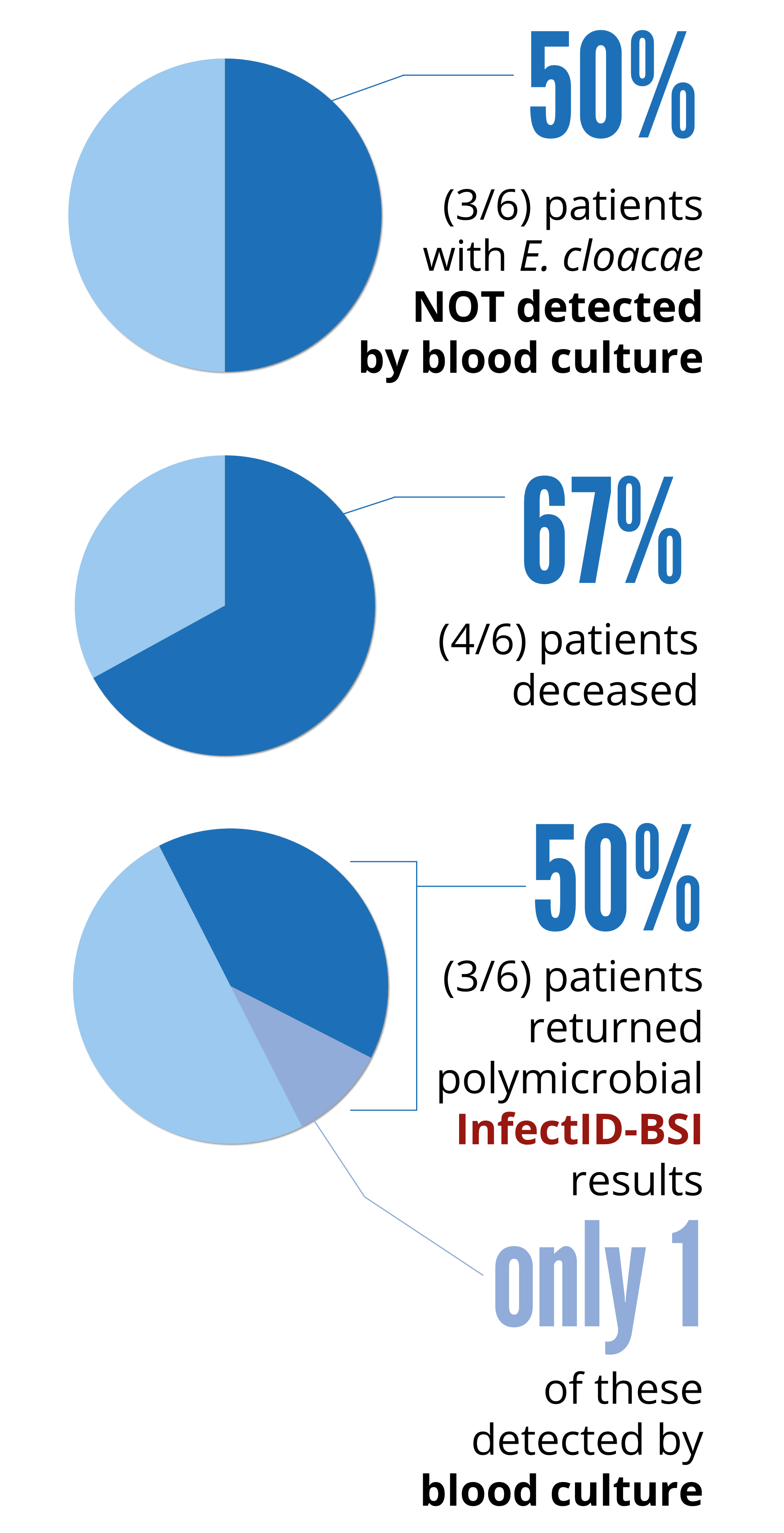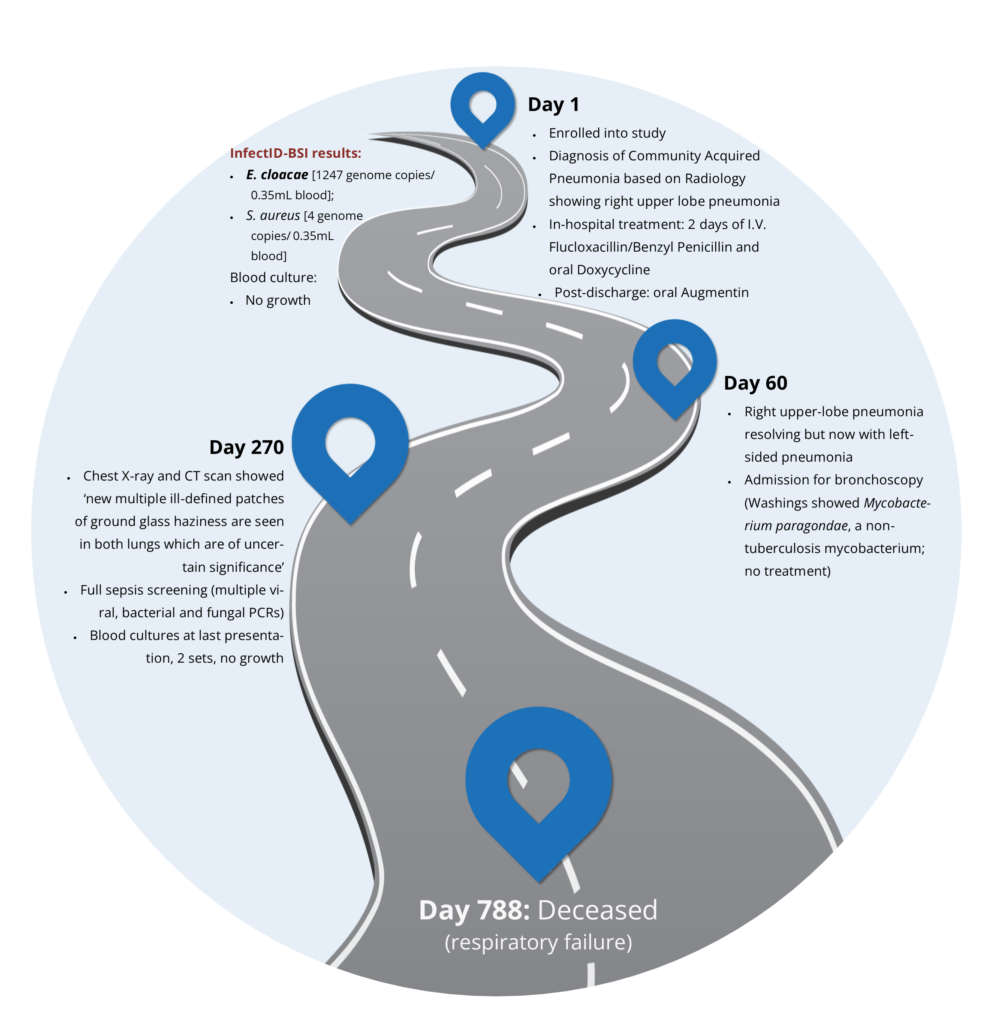Impacting the clinical management of bloodstream infections / sepsis caused by Enterobacter cloacae
Lisa Simms1, David Farlow1,3, Matthew I. Hiskens3, Tesfaye S. Mengistu3, Nicolas Sieben3, Brian McPherrin3, Janath De Silva3, Ron Nightingale3, Karen Smith3, Corey Davies1, Nadeesha Jayasundara1, Sumeet Sandhu1, Alex Pintara1, Raffaella Giardino1, Flavia Huygens*1
- Microbio Ltd., Brisbane, Australia
- Mackay Hospital and Health Service, Mackay, Australia
- Specdata Consultants, Brisbane, Australia
Introduction
Bloodstream infections/sepsis due to antibiotic resistant Enterobacter sp. highlights the critical need for rapid identification of this “superbug” directly in whole blood. InfectID-Bloodstream Infection (IID-BSI) enables diagnosis of sepsis-causing pathogens, with quantitation, direct from whole blood in < 3 hrs. We demonstrate the potential clinical impact of IID-BSI (compared to conventional blood culture (BC)) by examining the clinical outcomes of patients testing positive to the ESKAPE pathogen, Enterobacter cloacae.
Methods
Australian Emergency Departments with suspected BSI/sepsis were recruited into the study. At the same time as blood was drawn for BC, an EDTA blood sample was tested using InfectID-BSI. Clinical metadata was extracted from patient records including patient histories, examination, pathology, and radiology to assess likely clinical concordance to the identified pathogen/s. Quantitation was used to differentiate the likely pathogen where polymicrobial infection was found.
Results
From 368 matched samples, InfectID-BSI identified 102 pathogens compared to BC, which identified 54 pathogens. E. cloacae was identified in six patients (InfectID-BSI, n=6; BC, n=3).
Discharge summaries from these six patients indicate one patient had septic shock, four with sepsis (two were negative to BC) and one with bloodstream infection. Five of the six patients had either a malignancy or multiple comorbidities. Clinical concordance with InfectID-BSI results was 100%.
Polymicrobial detection by InfectID-BSI was found in 3/6 patients. Quantitation assisted with differentiating the likely pathogen/s.

One patient had a tortuous 270-day clinical pathway with multiple admissions and investigations for a recurrent changing pneumonic process but was negative to BC throughout this period. IID-BSI was positive to E. cloacae and S. aureus, with 1,247 vs 4 genome copies/0.35mL blood, respectively, indicating a likely E. cloacae infection.

Discussion
InfectID-BSI provides clinicians with a new rapid diagnostic tool that detects (and quantitates) twice the number of pathogens compared to BC, enabling early precision antimicrobial treatment.
For ESKAPE pathogens, in particular E. cloacae, InfectD-BSI has shown to be an excellent test returning results quickly from only a small blood volume.
